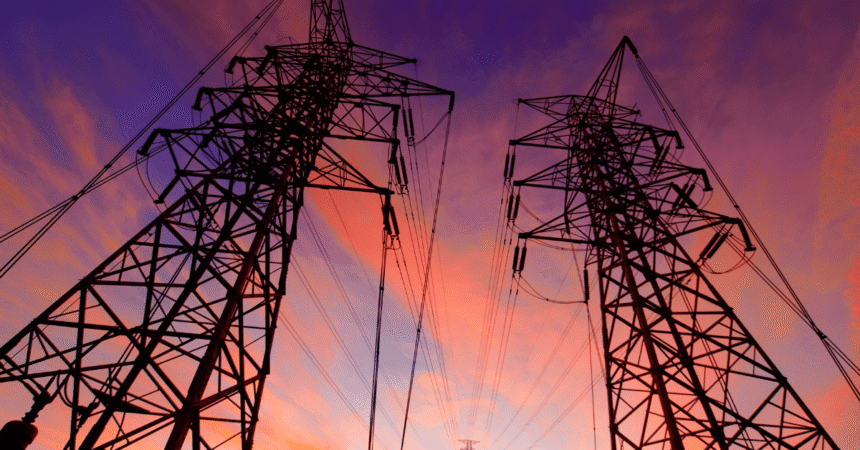The recent announcement that electricity prices in Karachi are set to increase has sparked significant concern among consumers. K-Electric, the primary electricity provider for the city, has submitted a request for a fuel price adjustment (FPA) to the National Electric Power Regulatory Authority (NEPRA) for the month of August. If approved, this request seeks to raise electricity rates by 51 paisas per unit, translating to an additional financial burden of over Rs850 million on Karachi residents. This development raises important questions about the impact on consumers, the rationale behind the price hike, and the broader implications for the energy sector in Pakistan.
Background on K-Electric and Fuel Price Adjustments
K-Electric has a long history as Karachi’s primary electricity provider, serving millions of consumers across the metropolitan area. The company operates under a regulatory framework that includes mechanisms for adjusting tariffs based on fluctuations in fuel costs. This system, known as the fuel price adjustment (FPA), allows K-Electric to pass on changes in the cost of generating electricity to consumers.
The FPA mechanism is a critical aspect of the electricity pricing structure in Pakistan, designed to ensure that electricity tariffs reflect the current market conditions for fuel sources, including natural gas, oil, and coal. While this system provides a degree of flexibility for utility companies, it also introduces volatility in electricity prices, making it challenging for consumers to anticipate their monthly bills.
The August Request for Price Adjustment
K-Electric’s request for a 51 paisas per unit increase in electricity rates is rooted in the fluctuations of fuel prices over the previous month. The utility company argues that the rising costs of fuel directly affect its ability to generate electricity at competitive rates.
NEPRA, the regulatory body responsible for overseeing electricity tariffs in Pakistan, will evaluate K-Electric’s request in a public hearing. This hearing will provide an opportunity for stakeholders, including consumer rights organizations, to voice their concerns about the proposed increase.
The financial impact of this adjustment is significant, with estimates suggesting that Karachi consumers could face an additional burden of over Rs850 million if the request is approved. This increase, while seemingly modest on a per-unit basis, can lead to substantial hikes in monthly bills, particularly for households that consume larger quantities of electricity.
Who Will Be Affected?
Notably, not all consumers will be impacted by this proposed price hike. Lifeline customers, who typically consume lower amounts of electricity, will be exempt from the increase. This exemption is designed to protect economically vulnerable households that rely on minimal electricity usage for basic needs.
Lifeline consumers generally include low-income families, students, and others who may struggle to afford rising utility costs. By exempting these consumers, K-Electric aims to mitigate the financial burden on the most vulnerable segments of society, though critics argue that more comprehensive measures are needed to address the broader issue of affordability in the energy sector.
The Broader Consumer Impact
For many households in Karachi, rising electricity costs can have significant implications. With inflation affecting various sectors, an increase in utility prices adds another layer of financial strain. Many families already struggle to balance their budgets, and higher electricity bills could lead to difficult choices about spending on essentials such as food, healthcare, and education.
Moreover, businesses in Karachi, especially small and medium enterprises (SMEs), may also be affected by the proposed increase. Higher electricity costs can erode profit margins and affect competitiveness, particularly in sectors that rely heavily on electricity for production and operation. The ripple effect of increased energy costs could thus extend beyond households to impact the overall economy of the region.
The Regulatory Landscape
NEPRA’s role in this process is crucial, as it serves as the gatekeeper for electricity tariff adjustments in Pakistan. The regulatory authority is tasked with ensuring that utility companies operate transparently and fairly, while also balancing the need for companies to recover costs associated with providing electricity.
During the upcoming hearing, NEPRA will assess K-Electric’s justification for the proposed increase, taking into account factors such as market fuel prices, generation costs, and the potential impact on consumers. The regulatory body will also consider input from consumer advocacy groups, who may argue against the price hike on the grounds of affordability and economic hardship.
Consumer Advocacy and Response
Consumer advocacy groups have long been vocal about the need for fair and transparent electricity pricing in Pakistan. These organizations often argue that utility companies should prioritize consumer welfare and work towards minimizing price fluctuations that disproportionately affect low-income households.
In light of K-Electric’s request, these groups are likely to mobilize and participate in NEPRA’s hearing, presenting their case against the proposed increase. They may emphasize the importance of developing a more sustainable energy pricing model that considers the socioeconomic realities of Karachi’s residents.
The Context of Energy Prices in Pakistan
The issue of rising electricity prices is not confined to Karachi; it is a nationwide concern that reflects broader challenges in Pakistan’s energy sector. The country faces a complex array of issues, including energy shortages, a heavy reliance on imported fuels, and a lack of investment in renewable energy sources.
Pakistan’s energy landscape has been characterized by chronic power shortages, leading to frequent load shedding and blackouts that disrupt daily life and economic activity. The government has made efforts to diversify its energy mix, but progress has been slow. As a result, consumers are often left to bear the brunt of rising costs associated with fossil fuel imports and outdated infrastructure.
The Shift Towards Renewable Energy
In recent years, there has been a push towards renewable energy sources as a means of addressing the energy crisis and reducing dependence on imported fuels. Initiatives aimed at promoting solar, wind, and hydropower generation have gained traction, with the government setting ambitious targets for renewable energy adoption.
However, the transition to a more sustainable energy system requires significant investment and infrastructure development. Until such changes are fully realized, consumers will continue to face the reality of fluctuating electricity prices driven largely by the costs of traditional fuel sources.
Economic Implications of Rising Electricity Prices
The economic implications of rising electricity prices extend beyond individual consumers and businesses; they also affect the broader economy. High energy costs can lead to reduced consumer spending, as households allocate more of their budgets to utility bills. This shift in spending patterns can have a cascading effect on local businesses, which may see reduced sales as consumers cut back on discretionary spending.
Moreover, for industries that rely heavily on electricity, increased costs can erode competitiveness both domestically and internationally. If Pakistani goods become more expensive due to higher production costs, it could result in decreased exports and a less favorable trade balance.
Government Response and Policy Considerations
In light of the challenges posed by rising electricity prices, the government of Pakistan may need to consider policy measures aimed at mitigating the impact on consumers. This could include exploring subsidies for low-income households, investing in renewable energy infrastructure, and incentivizing energy efficiency programs.
Additionally, the government could work with utility companies to develop more transparent pricing models that better reflect actual costs while minimizing volatility. By fostering a more stable energy pricing environment, authorities can help alleviate some of the financial strain faced by consumers.
The Path Forward
As NEPRA prepares to hear K-Electric’s request for a price adjustment, the coming days will be crucial for Karachi consumers. The regulatory body’s decision will not only impact individual households and businesses but will also reflect broader trends in the country’s energy sector.
Stakeholders, including consumer advocacy groups, business associations, and government representatives, must continue to engage in discussions about the future of electricity pricing in Pakistan. The goal should be to develop a sustainable energy model that ensures access to affordable electricity while encouraging investment in cleaner energy sources.
The potential increase in electricity prices for Karachi consumers is a multifaceted issue that encompasses economic, regulatory, and social dimensions. As K-Electric seeks to adjust its rates in response to fuel price fluctuations, the implications for households and businesses in the city are significant.
While the exemption for lifeline customers provides some relief for the most vulnerable populations, broader measures are needed to address the challenges posed by rising energy costs. The upcoming NEPRA hearing will be a pivotal moment in shaping the future of electricity pricing in Karachi, and stakeholders must advocate for solutions that prioritize consumer welfare and sustainable energy practices.
As Karachi navigates these challenges, the path forward will require collaboration between utility companies, regulatory authorities, and consumers. Together, they can work towards a more equitable and sustainable energy future for the city and the country as a whole.
#KarachiElectricity #KElectric #ElectricityPrices #NEPRA #FuelPriceAdjustment #ConsumerAdvocacy #EnergySector #RenewableEnergy







